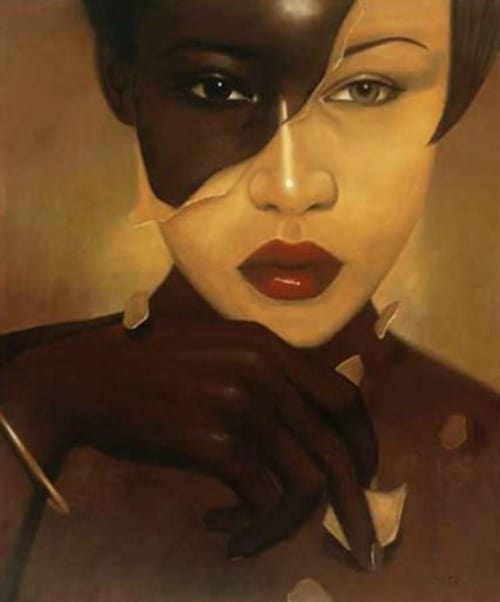Across Cultures, darker people suffer most, why?
-Andre 3000

Dark skinned girls and media representation
We’ve all grown up with standards of beauty that were difficult to live up to. For dark skinned girls, the standards were impossible to meet.
As a teenager, my favourite tv shows starred tall, slim, white women with perfect proportions. The magazines I saved up for were saturated with models that had slim noses and straight hair (i.e features that were uncommon to black women, coincidence?)
We all remember the good ol’ tumblr days, wherein mixed race girls became ‘tumblr famous’, gained large followings and landed American Apparel ads for their superior beauty.
During this same period, I recall the cringy trend where men (including men of color) would make fun women with dark skin and akin them to zoo animals. In fact, several celebrity men have since been exposed for old tweets that express their disdain for darker skinned women. All in all, while taste and preference is acceptable, dehumanising a woman because of her skin tone is not!
Efforts to empower dark skinned women
In recent years, we have witnessed some efforts to remedy this heinous, colorist trend. In an effort to appease women of color, studios and networks have committed to casting token black girls in tv shows as well as producing one or two films with a fully POC cast. Long gone are the days where films or tv shows with a fully white cast would be acceptable (ahem f.r.i.e.n.d.s!).
While this effort is somewhat commendable, women of color , especially those of darker skin are not quota fillers. They are headliners,stars, and ‘name-on-the-marquee’ type of chicks.
Prevailing colorism
In the midst of the era of political correctness and faux representation, colorism still manages to rear its ugly head in subtle ways. One only has to scroll down the page of their favorite online shopping store to notice that a certain kind of body type and skin tone is represented by the models. If you are looking for more evidence of this injustice, look no further than whatever season of love island is currently on air.
That being said, colorism is not relegated to the Western world. In Africa, women of lighter skin are seen as more desirable; this has sparked a trend of skin bleaching and hair extensions. In places such as India, people of darker skin are assigned to a lower caste and treated as such.
So what is the cause of all this? Coloniaism? Slavery? European control of media/narratives, association of lighter skin with money and power? All of the above?
Ways forward
This is an important query but I am more interested in where we should go from here. What role does each of us have in examining our biases and unlearning, problematic eurocentric standards?
I believe that change starts with us.
Lets take it all the way micro; within familiy units, parents should make sure that their dark skinned daughters know the history and beauty of their heritage. Instead of waiting for the media to catch up, we should see the lack of adequate representation in the media as an opportunity to open up important converations with our nieces and younger sisters.
As a society, we should pour our money and support into ventures that uplift women of color (in a genuine manner).
As for the media, women of all shades must be equally represented. I would kill to see more complex, well written women of color on my TV screen. There is more to us than the constant tropes that they try to shove down our throats.
Indeed, there is still some way to go but in the interim dark skin girls, please remember this: you are beautiful.
About the Author

Amy Oloo completed her master’s in International Affairs at the American University of Paris and has a keen interest in issues that pertain to intersectional feminism.
Blog posts by this author:
Women in Sports: Lessons from the Women’s World Cup
The Sudan Massacre: Patterns of oversight in the Media
Women in conflict: untold narratives in the media
Mental illness and violence against women
Erasure of Black women in the fourth feminist wave